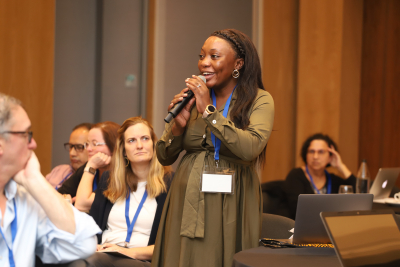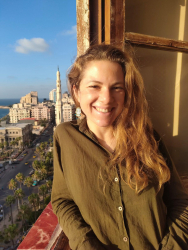


The Academy of Medical Sciences UK and the Academy of Science of South Africa (ASSAf) published the reports of the results from their most recent collaboration to build researcher capacity and boost mental health research.
The reports summarise the findings of two workshops that the two academies conducted in November 2022 and focused on mental health research and supporting career development in countries across Africa including South Africa, Ghana, Ethiopia and Nigeria. The workshops form part of a wider programme of work with sister Academies and partners in South Africa, Kenya and Brazil for which the Academy of Medical Sciences has co-hosted workshops on important policy issues and career development initiatives.
More than 70 researchers, policymakers and wider stakeholders joined the event from across the continent, including South Africa, Ghana, Ethiopia and Nigeria, to discuss how best to take forward mental health research in the region and identify research gaps. Although there is some evidence of increasing investment in research and awareness of mental health issues, mental health services are a neglected aspect of healthcare across countries in Africa.
Discussions identified that there still remains an urgent need for additional research across all stages of the mental health translational pathway and that it is critical that key research gaps are addressed to tackle the challenge of mental health. In particular, new studies need to consider the fundamental importance of social factors such as gender, age and geographic area, as well as biology in mental health outcomes. Recent years have seen additional evidence published on the effectiveness of mental health interventions, showing those that target the social determinants could deliver benefits for large numbers of people over prolonged periods of time.
To improve future studies, participants also suggested strengthening and diversifying data sources, including the need for more information on disease burdens and priority populations, in addition to social determinants of mental health. The participants emphasised the importance of engaging with people with lived experience to provide opportunities for meaningful inputs at all stages. This could include identifying and prioritising research questions, as well as co-creation and delivery of interventions. Additional research also requires an interdisciplinary and cross-sector approach based on extensive partnerships, with greater sub-regional and international collaboration. There is a need to develop consistent, locally defined, standardised, and appropriate metrics for measuring outcomes, and ensuring that these are culturally relevant.
"The presentations at this workshop highlighted the various ways in which mental health issues challenges our society. The engagement with scholars from South Africa, other countries in Africa and the UK has provided us with a scaffold to have further engagements regionally and we look forward to building on collaborations to address mental health challenges going forward."
We partnered with ASSAf to co-host a researcher capacity building workshop that brought together researchers from countries across Africa, at different career stages and disciplines, career development experts and staff. Participants at the workshop also included the Academy of Medical Sciences' Global Challenges Research Fund Networking awardees and Newton Advanced Fellows. It provided the opportunity for participants to share and reflect on their experiences of mentoring, peer support, and career development to identify best practices and key challenges.
The discussions highlighted the multiple approaches available to support the personal and professional development of researchers, including diverse types of mentoring, technical training, leadership development, and coaching. The report highlights the importance of researchers securing career development opportunities to navigate career pathways and achieve their full potential. Support schemes, such as mentoring, need to adopt a researcher-centred approach and be tailored to a local context and individual needs. Creating partnerships and international networks can provide opportunities for capacity development; however, more efforts are needed to shift the centre of gravity of international research collaborations to Africa. Together with ASSAf, we want to thank the participants for their input, and we are looking forward to sharing the recommendations with our networks and using the outcomes of discussions to inform our future activities.
"The Academy of Science of South Africa and the UK Academy of Medical Sciences have closely aligned missions and values. Together, we have the power to convene people around shared policy issues and improve how research is done for the benefit of people everywhere. Many of the global health challenges we face, such as improving mental health, require international collaboration and knowledge sharing, as well as ensuring that researchers have the best support to deliver excellent science. Our partnership provides a solid foundation for this, enabling us to help drive a more progressive and open research sector and to foster the next generation of research leaders globally."
The reports summarising the discussions of both meetings are available to download:
Mental health policy workshop
Researcher capacity building workshop
This article is republished from the website of the Academy of Medical Sciences (UK), you can read here the original article.
